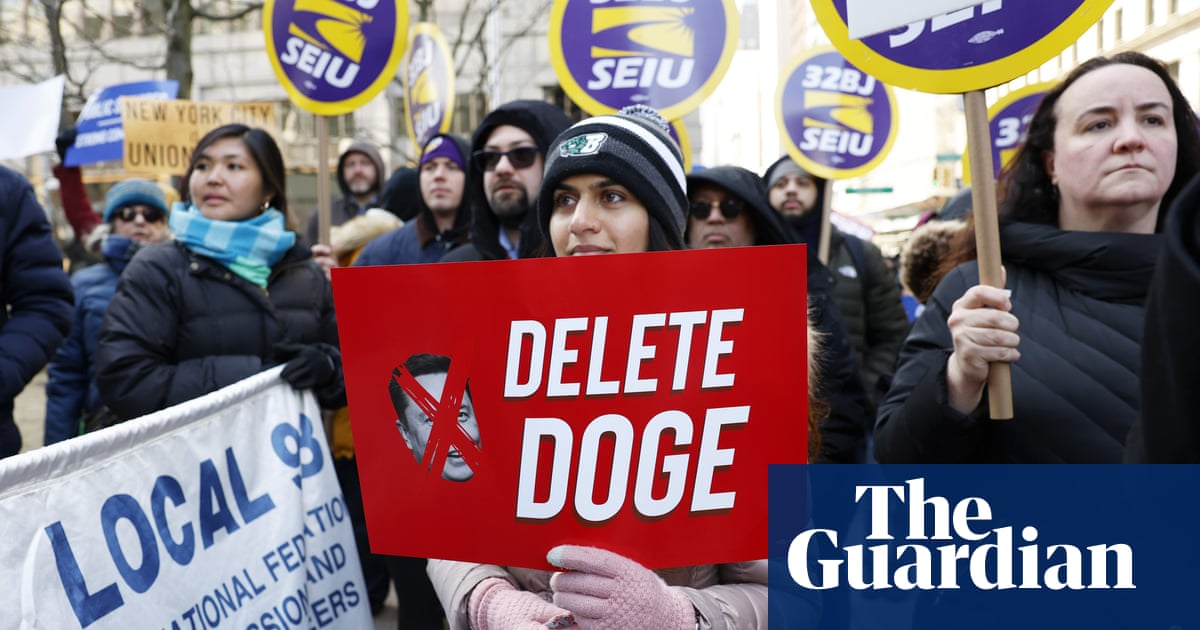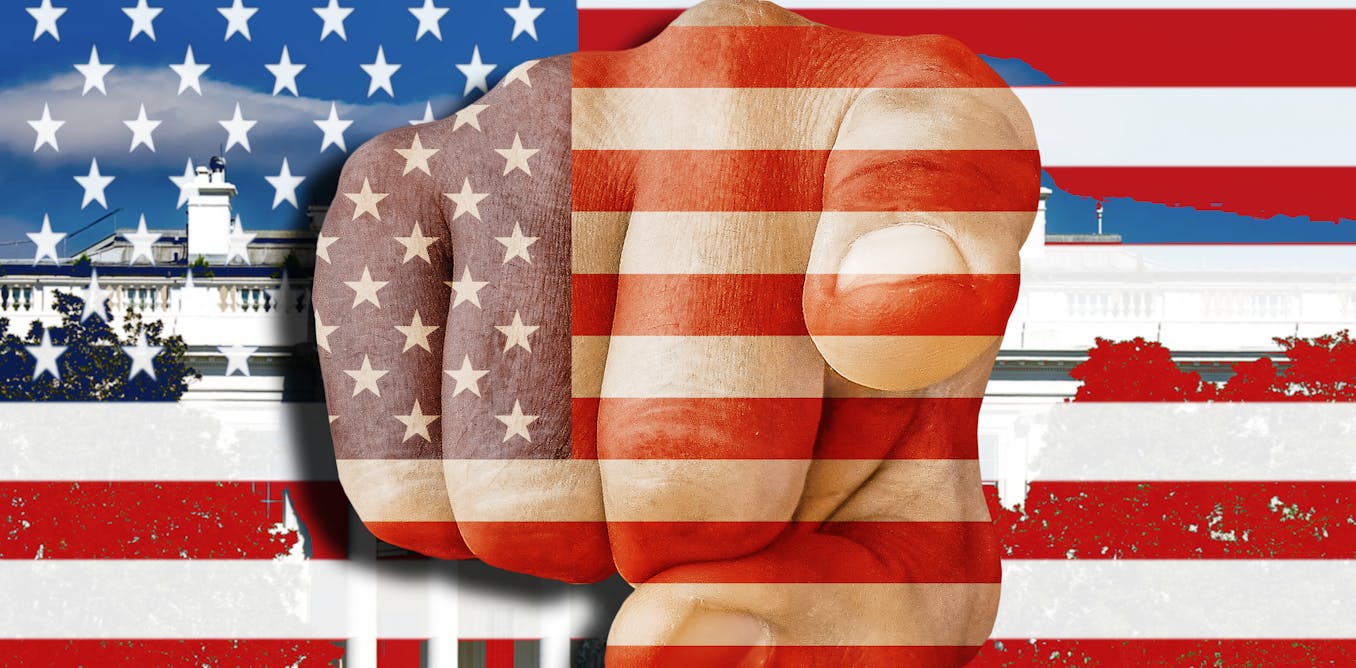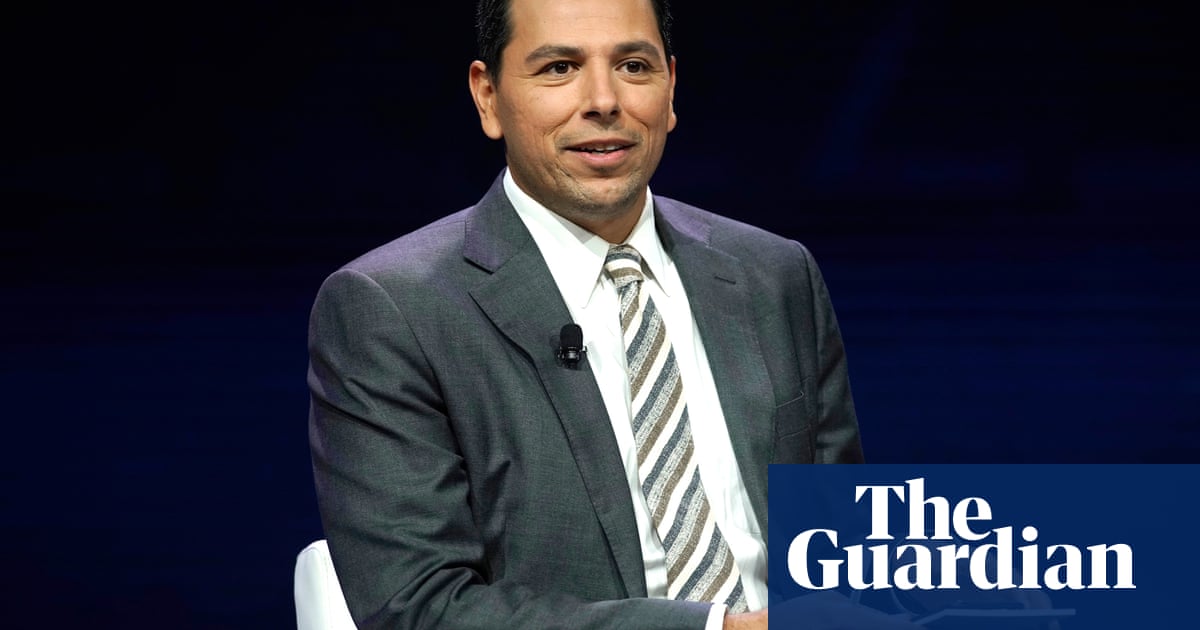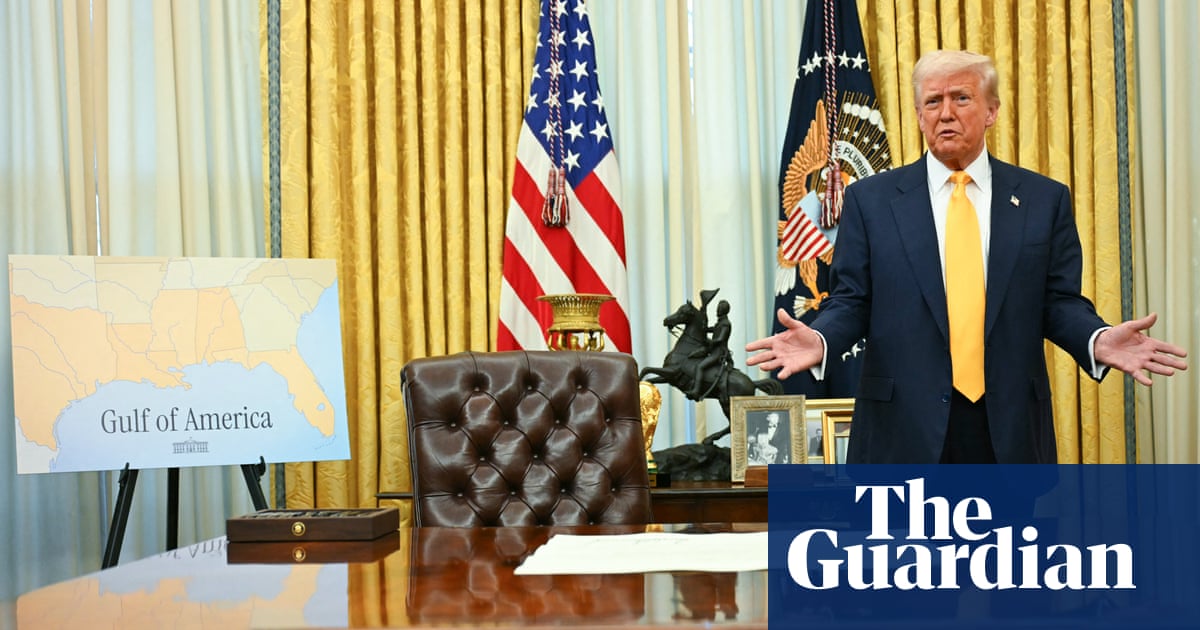Donald Trump began the second term of his presidency last month with a victory lap at a rally in Las Vegas, Nevada, a key swing state he flipped in 2024, by reaffirming his campaign promise to pass a proposal to abolish taxes on tips.
Nearly 6 million workers around the US rely on tips for most of their income. Under federal law, tipped workers can be paid as little as $2.13 an hour, a minimum that has not changed since 1991. Only seven states, Alaska, California, Minnesota, Montana, Nevada, Oregon and Washington, have banned the sub-minimum wage for tipped workers.
Democrats have supported efforts to abolish taxes on tipped income, including last month when the Nevada Democratic senators Catherine Cortez Masto and Jacky Rosen reintroduced a bipartisan bill, No Tax on Tips, with Senator Ted Cruz of Texas and other Republicans, that would abolish taxes on tipped income.
“Just today, I got my paycheck for two weeks and it was only $94 so all of it basically went to my allocation, which are the taxes, so no tax on tips would be great,” said Sherie Cummings, who has worked for 25 years as a cocktail server at Mandalay Bay Casino and member of the Culinary Union, which represents 60,000 food and hospitality workers in Nevada.
The Democratic congressman Steven Horsford of Nevada has also backed the no tax on tips legislation, calling it a “step in the right direction, even if I would prefer to step further.”
Horsford has proposed a bill to provide further relief, reintroducing the Tipped Income Protection and Support Act on 13 February. The bill would abolish taxes on tips, eliminate the sub-minimum wage for tipped workers, and enact guardrails to ensure eliminating taxes on tips is not abused for tax avoidance purposes. Nevada’s other two Democratic congressional representatives, Dina Titus and Susie Lee, have co-signed the legislation.
Horsford said his bill would eliminate the sub-minimum “ensuring hard-working Americans never earn poverty wages of $2.13 an hour. It also closes a loophole preventing wealthy parents from evading taxes on gifts to their relatives by claiming those gifts are tips.”
The restaurant industry, including the National Restaurant Association, opposes Horsford’s bill while supporting abolishing taxes on tipped income.
The push to eliminate taxes on tips has been criticized for failing to address the sub-minimum wage for tipped workers, and a lack of guardrails to prevent employers and the wealthy from taking advantage of a no-tax on-tips policy, such as employers expanding the number and types of jobs reliant on tips, according to a recent report by the Economic Policy Institute.
“The rest of the country needs to wake up and end the sub-minimum wage of $2 and change. Look at me. I’m suffering. I hardly get a paycheck making $17.79 an hour. Can you imagine everywhere else that has a way less hourly rate than that? They’re definitely suffering and hardly getting by,” said Diana Bond, a server in Las Vegas, Nevada and member of the Culinary Union.
“We need to make sure that all hospitality workers are being treated fairly and getting an hourly rate that they can survive on. There are so many states that are less than $5 an hour, and I don’t know how it’s not illegal at this point. They’re crushing us, and they’re crushing our ability to survive and support and provide for our families.”
Bond noted that her union’s success in gaining wage increases locally was a big help but despite making $17.79 an hour plus tips, she said the Internal Revenue Service’s tax tip compliance takes a lot of what she earns.
“My paycheck should be around $1,500 biweekly. And I get less than $200 biweekly out of my paycheck,” she said. “Our tips are our wage, and to be heavily taxed like that is unfair, and it’s not right.”
Trump and Republicans have yet to support efforts aimed at raising the sub-minimum wage for tipped workers.
During Trump’s first term, his administration proposed a tip pooling rule that would have enabled employers to take tips from servers and share them with non-tipped workers, but didn’t require employers to distribute tips as long as they received minimum wage.
The Trump administration backtracked in a compromise in 2018, before Trump’s Department of Labor re-enacted the rule in December 2020. The Biden administration retracted it in early 2021 before it took effect.
The union has noted while it supports ending taxes on tips, ending the sub-minimum wage for tipped workers along with it is critical to help workers.
“Eliminating taxes on tips and ending the $2.13 sub-minimum wage, along with going after big corporations’ price gouging on food, gas, and housing must be part of an overall program to tackle the high cost of living for working families,” said the Culinary Union secretary-treasurer, Ted Pappageorge, in a statement on the reintroduction of the Tips Act. “It’s outrageous that many companies across the country still pay tipped workers as little as $2.13 an hour. The legislation that Congressman Horsford is championing will uplift millions of workers, including many in Nevada, by eliminating federal income taxes on tips and ending the sub-minimum wage.”

 German (DE)
German (DE)  English (US)
English (US)  Spanish (ES)
Spanish (ES)  French (FR)
French (FR)  Hindi (IN)
Hindi (IN)  Italian (IT)
Italian (IT)  Russian (RU)
Russian (RU)  4 hours ago
4 hours ago
























Comments